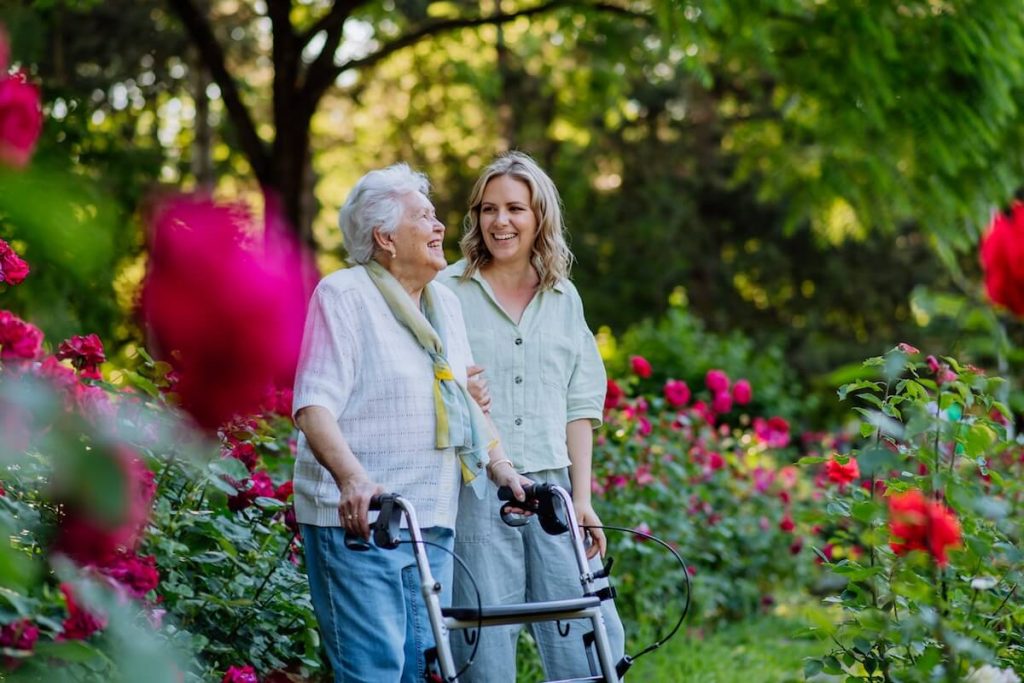Top 10 Fears of Aging
One of the keys to healthy aging is recognizing the things that worry us. We may not talk openly about these things, but you can be sure we think about them—a lot. In fact, a recent study identified the top 10 things individuals over 55 fear most.
1. Loss of Independence
We spend our whole lives learning to be independent and take care of ourselves. The thought of turning that responsibility over to others is frightening. Remember when you couldn’t wait to turn 18 because you’d legally be independent of your parents? That independence is something we all cherish because it’s the core of living life on our terms. As we age, we may see this independence change as our health needs change.
For family members, it’s essential older adults maintain as much control over their lives as possible, so always try to ask if you can help or offer options instead of making decisions for them. For example, instead of saying “Don’t change that light bulb, you might fall!” ask “Would you like me to check or change any light bulbs?”
You can also frame assistance in the form of a gift by printing a gift certificate for five kitchen cleaning sessions, yard work, or similar tasks they may be worried about not being able to do on their own. By reassuring them that you enjoy helping, you will reassert their sense of independence.
2. Declining Health
Declining health, of course, goes hand in hand with loss of independence and is often a tough subject to talk about. We may reach a point where we need daily assistance with personal care or can no longer safely maintain our home but resist help because we fear we’ll lose our independence or home.
As a family member or loved one, your best bet for defeating the anger of aging is to research options and have a candid talk about the results you’ve found. The Institute on Aging reports 91% of seniors have one or more chronic conditions, so your parents’ declining health is not isolated. Physical limitations increase with age, and 65% of seniors requiring long-term help rely on family and friends.
Another 30% use paid assistance, so you should determine what they need now and may need in the future and plan accordingly. Check local resources and insurance policies and discuss their health care needs and possible future needs, so they don’t have to worry about “what ifs.”
3. Running Out of Money
Many seniors fear running short of funds. Even those of us who have been prudent and wisely put aside funds may worry we won’t have enough. We worry about what will happen to us—and the impact it can have on our children or families.
It’s often hard for older adults to talk about money but you can ease into the conversation slowly. Make sure their basic expenses are covered then open the discussion to their long-term financial plans. Make a detailed budget to reassure them of their financial security. Factor in monthly expenses such as food, utilities, and housing as well as optional expenses such as travel and hobbies. Don’t forget savings and emergency money for vehicles, home repairs, and similar big-ticket items that may need to be purchased in the future.
4. Not Being Able to Live at Home
For many of us, home is much more than the house we live in. It’s a place packed with memories. It’s familiar. It feels safe, and it’s a huge part of our identity. Like most fears, talking about the subject will help alleviate the stress. Start by discussing future options, such as hiring a live-in caregiver, downsizing, and senior living communities.
Research retirement communities in your area and take a tour of your top three. Remind them they are looking at options, not planning a move. Once they understand the different possibilities for various scenarios, they won’t have to worry about what the unknown future might bring.
5. Death of Partner/Family Member
In addition to being a reminder of our own mortality, there is a genuine sense of loss of relationships. It’s harder to build lasting relationships at an advanced age. Most seniors worry more about losing a loved one than they do their own death and fearing the loss of a caregiver can be extremely stressful. Discussing the possibility is the best answer because it allows your parent to look at the future more objectively.
The best way to bring this up may be to talk about your own mortality. Make a Will and a Living Will and let them know your wishes. This will open the discussion of their own plans and let them talk about what worries them about losing a spouse or other family member.
6. Inability to Manage Activities of Daily Living
Perhaps nowhere is the loss of independence so acutely felt as in the inability to perform activities of daily living, such as eating, dressing, and bathing. Older adults fear losing control of their lives and requiring help in these areas is an unwelcome reminder of that. It’s important that your parent continue to do as much as possible even if it takes twice as long. Mental and physical activity is also vital because it lessens dependence, so look for senior yoga classes and similar activities that will help your parent build their strength.
Activities of daily living (ADL) are one of the things we all take for granted until we can no longer do them. If you’ve ever had surgery or an injury that makes it hard to do something simple such as brush your hair or shower, you can imagine how hard it is to lose that ability permanently.
Consider assisted living, which is an excellent choice for anyone who wants to maintain the best possible quality of life, but may need help with daily tasks such as bathing, mobility, dressing, or taking medications.

7. Not Being Able to Drive
Giving up the car is a severe blow to many older adults. It’s one more act of independence they have to forfeit. They are no longer free to come and go as they please but have to depend on others. Remember the freedom you experienced the first time you got the car keys in your teenage hands? That’s the independence they fear losing. If it’s no longer safe for your parents to drive, you should make sure they have reliable transportation, even if it’s just for a spur-of-the-moment Sunday drive.
If they need to rely on family members, make a calendar with a clear rotation and appointments, so everyone is on board with who needs to drive them where, and when. On the other hand, most senior living communities have shuttles for residents so they can conveniently shop, go to appointments, and enjoy recreational activities.
8. Isolation or Loneliness
Likewise, losing the ability to drive heightens the fear of isolation or loneliness. Whether it’s rotating family member visits or a network of neighbors, it’s important that seniors get out and about and socialize regularly.
Remember walking into a new group or community may feel awkward to them, so it’s a good idea to go with them the first few times. Most senior centers offer periodic trips to local sites and events, so go over the calendar with your parents and choose one or two-day trips you can enjoy together. By the end of the second trip they will feel comfortable with the group as a whole, and most likely will have struck up a friendship with one or more fellow travelers.
9. Strangers Caring for Them
We all generally prefer to be around familiar faces. Having a stranger provide care (especially for intimate needs) is extremely uncomfortable. While having a family member as the primary caregiver may be ideal, it isn’t always feasible, so if your parent needs outside help, finding the right support is a significant decision. Listen carefully to any concerns your parent has and don’t discount their (or your) instincts if something feels “off.”
Remember, just because someone is qualified doesn’t mean they’re a good fit for your parents. Plan to have a family member present for the first few months the aide visits; by then they will seem like a friend and your parent won’t be stressed by being alone with a stranger.
10. Fear of Falling or Getting Hurt
Ironically, the most valid fear comes in 10th place in seniors’ fears of aging, but the Center for Disease Control (CDC) states one in three seniors has a fall each year – making it a realistic scenario. However, many falls can be prevented through safety measures, such as handrails, removing slipping hazards such as rugs, and taking as many other precautions as possible. In addition, check medications for side effects that may cause dizziness and keep on top of your parent’s health.
Take a good look at your parents’ home. Is there clutter that might be tripped over? Are the stairs well-lit? Is the floor slippery when it’s wet? Does the porch ice up in the winter? There are many simple preventative measures you can take to make sure your parent doesn’t fall, including:
- Install grab bars in the shower, tub, and next to the toilet
- Reinforce existing handrails on all stairs and steps
- Place anti-slip strips on all steps
- Increase lighting is problem areas
- Hire someone to shovel and salt porches and walkways in the winter
It’s important to understand the fears our aging older adults face. Many of the myths of senior living can often be dispelled. But often fears grow bigger when they’re not vocalized, so it’s important to discuss them in an informal conversation. You don’t have to talk with them about these things all the time, but it can help temper your reactions when you better understand why they sometimes react the way they do.
In addition, senior living communities can help combat many of these fears of aging. By enhancing independence, offering safety, promoting connections, and more, senior living can help individuals embrace aging. And Village Green Senior Living in Federal Way and West Seattle, Washington, offers exemplary senior living options. Let us show you around – reach out today to start the conversation!

